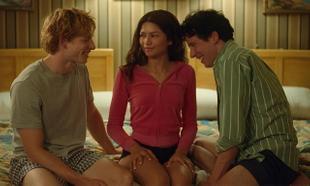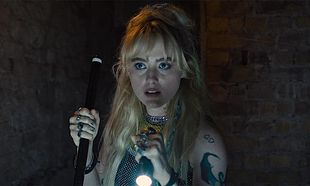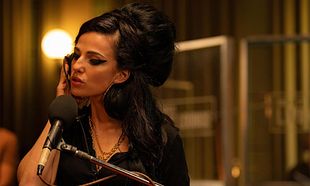It’s easy to be blinded by the achievement, by an admiration for the filmmaker’s rebellious spirit, the fact that this exists. Iranian Jafar Panahi has been banned from making films and so has to do what he can in secret, slipping the work out through channels and into international festivals (Closed Curtain debuted in Berlin in 2013).
But, as in his last film, This Is Not A Film, the work bores. Resorted to shooting in one location has confined his imagination – although that didn’t hurt his terrific comedy Offside – and the story drifts here and there.
Panahi’s co-director Kambuzia Partovi is The Writer (always a bad sign when a character is called The Writer) who has smuggled his faithful dog, Boy, to a secluded summer home. He immediately sets about closing all the curtains, blacking out the windows and locking the doors. It transpires dogs have been deemed impure and are being shot in great numbers and when The Writer stepped in to save his dog, he struck the would-be executioner. Now he’s on the run and the last thing he needs is the suicidal Melika (Moqadam) and her brother (Saeedi), also fleeing the authorities, knocking on his door in the middle of the night…
What we have here are lots of static shots, wandering about the house, listening at doors, closing curtains, etc. - all heavy on the metaphor. Melika, who appears and disappears mysteriously, is a manifestation of both inspiration and fear – fear of capture and fear of a loss of talent.
But it’s dull and a sequence where The Writer reenacts the steps leading up to Melika’s appearance, which is revisited later, feels pointless. When events take a turn for the metaphysical and Closed Curtain, it’s a welcome distraction from the monotony. Panahi turns up (playing himself – another bad sign), who seems to occupy the same space but not the same time/world as The Writer. Things get confusing as to who is writing whom, as both stories start to fold into each other. But interest turns into pretension with Panahi unveiling posters of his films that were previously hidden behind drapes on the wall. Then other stuff happens and it’s over.
The sense of frustration is palpable, and it’s shocking that a filmmaker is reduced to such means, but this is far too self-serving.









































































